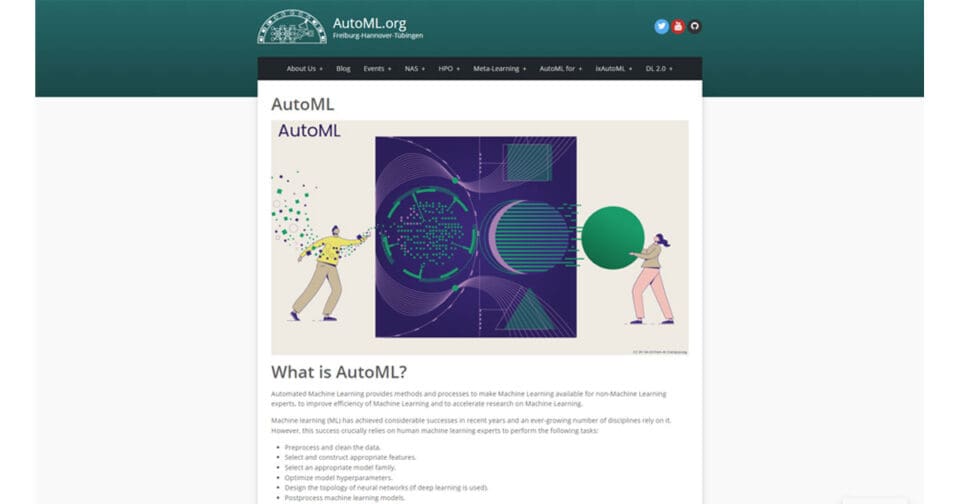Artificial Intelligence (AI) has impacted ecommerce heavily since its introduction, by making tasks more convenient, accessible, and easy to navigate.
By 2030, there will be an expected value of $16.8 billion for AI technologies in the eCommerce market, with a 15.7% growth rate in the next eight years.
AI is poised to make a huge difference moving forward. Think about it — now a machine can carry out cognitive tasks that connect with human minds.
This includes sensing, thinking, learning, solving problems, and even exercising creativity.
With all of these latest capabilities, humans will be living in a completely new world alongside AI technologies.
The Role of AI in eCommerce
With all of these developments, AI has become a key feature for optimizing the eCommerce user experience.
Let’s review the primary ways it is changing the game.
A. Generates Personalized Product Recommendations
AI algorithms have started to be exceedingly vital for eCommerce personalization.
Brands can capitalize on it for discovering the trends, tastes, and behaviors of specific customers.
With the ability to analyze enormous amounts of data, marketers can provide more tailored and personalized buying experiences.
AI tools gather many client data points, including their browsing and shopping histories, social media activities, and demographic data, to drive personalization.
With this information, teams can identify each customer’s unique wants and preferences.
This lets companies cater to individual customer needs and make more pertinent product recommendations.
Simply put, another one of the benefits of AI is its ability to target more people through product recommendations and personalization of information.
B. Improves Search and Discovery
AI can also play a huge role in helping optimize for customer search and discovery.
By combining cutting-edge machine learning algorithms with leading eCommerce technologies, marketers can help customers from all over the world find precisely what they need…in their own languages.
In addition, AI software enables firms and brands to better understand consumer buying patterns, boost the purchasing experience, and streamline key processes.
C. Assists With Virtual Shopping
Another of AI’s main benefits is its capacity to improve and support the buying experience for customers.
Companies can use eCommerce technology to analyze consumer behavior, including past purchases, search history, product recommendations, advertisements seen, and browsing patterns.
When combined with AI capabilities, technologies such as augmented reality (AR) and virtual reality (VR) can deliver engaging and interactive experiences to all visitors.
Additionally, AR enables online shoppers to preview goods or use services in their own space and at their own pace before deciding whether to buy.
Your clients will be more likely to choose the proper item the first time when they can use AR to preview products.
Big-box furniture stores like IKEA offer augmented reality applications that let customers browse a variety of furniture options online. These apps also help customers virtually sample and arrange the items in their houses to “try before buying.”
Thus, with the help of AI, you can help visitors connect better with your product and the experience of using it. This, ultimately, will help you sell more products to your target audience.
D. Helps Owners Manage a More Efficient Supply Chain
Artificial intelligence can assist in finding inefficiencies and recommend solutions to those issues.
It does so by examining data gathered throughout the supply chain, or the process of a commodity’s production and distribution.
With this information in hand, you can reduce production costs and accelerate product delivery times.
Therefore, in order to elevate supply chain processes, eCommerce enterprises are turning more and more to artificial intelligence.
You can also use AI systems to solve warehouse issues and manpower errors instantaneously and precisely. This is an improvement over relying solely on humans to address these concerns.
Hence, AI can help you save time and effort, as well as minimize mistakes.
Additionally, automation projects powered by AI have the ability to drastically reduce the demand for and expense of new warehouse workers.
AI is also having an impact on supply chain management by making it possible to track and monitor commodities in transit in real-time.
E. Optimizes Demand Forecasting and Inventory
eCommerce technology can help businesses upgrade their supply chain management, make better decisions, streamline internal and external processes, reduce inventory-related threats, and ultimately swell customer satisfaction.
How can they achieve all of these benefits? By capitalizing on the enhanced capacity of AI for demand forecasting.
With artificial intelligence, you can optimize your projection process by taking into account components like historical sales data, existing trends, and even media internet activities.
With this analysis completed, you can fully optimize logistics based on highly accurate demand forecasting.
For one thing, you can accelerate your order fulfillment process with efficient and convenient sorting, picking, packing, and organization capabilities that AI software can oversee.
Contrarily, you’re more likely to cost yourself by having personnel manage the process, with things such increased errors, and wasted time and money.
F. Automates Order Fulfillment and Logistics
AI can offer massive benefits to your logistics, specifically via streamlining processes and boosting productivity.
You can use it for customer service, inventory administration, demand forecasting, and optimization of delivery routes.
With these items automated, you can achieve faster delivery times and improved customer experiences / satisfaction.
G. Provides Real-Time Customer Assistance
Online merchants are using AI-driven chatbots to provide real-time customer care and after-sales dialogue.
Chatbots are popular solutions, because they offer “always on” customer service without human intervention.
Hence, customers can get help from them with product information, order tracking, return cancellations, and other services — anytime and anywhere.
Moreover, your business can use data from AI Chatbots to upgrade buyer experiences and produce more satisfactory interactions with them.
With the aid of technologies like avatars and sentiment analysis, customer service reps can reply more rapidly. They can also better anticipate client demands before they are caught off guard by new complaints.
Therefore, anyone can now pose questions and concerns to businesses at THEIR most convenient time and get answers within the blink of an eye.
H. Assists in Marketing Campaigns
AI-driven software can acquire and analyze consumer information to spot trends, implement behavioral segmentation, boost engagement tactics, and achieve specific goals by discovering and adapting, leading to better customer targeting.
You’ll find a large number of examples and case studies available online, summarizing how marketing teams have been able to take advantage of these groundbreaking new capabilities.
In digital marketing campaigns where speed is crucial, AI can ensure consumer loyalty, high engagement, and better conversion rates.
AI Tools for eCommerce Businesses
Here’s a quick rundown of well-known AI technologies that you can test out for your own marketing campaigns.
1. TensorFlow

Currently, TensorFlow is the most widely used deep learning library.
As one of the best AI development tools, this Google machine learning platform is an open-source Python toolkit which streamlines and improves numerical calculations for making future predictions.
2. Removal.AI

If you are looking for a graphic-design-related AI technology, then Removal.AI is for you.
It has the most accurate background removal feature. plus other editing tools that you can use for posters, brochures, infographics, photography, marketing campaigns, and social media posts.
The product’s best feature is its precise and quick removal of image backgrounds.
In addition, Removal.AI upgrades its code regularly to cater to the changing needs of its users.
3. Keras

Keras is one of the most well-known AI tools for eCommerce. It is prominent for being straightforward and efficient when it comes to generating and refining neural networks.
With Keras, users can mold high-quality and efficient models for applications such as picture recognition and language processing. Plus, it comes with a simple and direct user interface and pre-built layers.
By providing a seamless transition between popular backends, this AI technology offers flexibility and versatility.
It is a well-liked choice of tool because of its usability and accessibility, enabling people to explore the fascinating world of advanced machine learning with ease and assurance.
4. AutoML

AutoML is another top-notch resource that is currently available to machine learning engineers.
This powerful software uses machine learning techniques to automate the steps needed to formulate a real-world problem.
This allows a data expert to realign and direct his mind away from laborious and repetitive workloads, such as modeling, to resolve the existing web challenges.
AutoML is available to all because it caters to people, including those who have no background knowledge concerning ML skills.
You can use this technology to further your business, particularly if you are dealing with different problems that require abrupt and accurate solutions.
5. H2O

If you want to democratize generative AI, then you should check out H2O.
This deep learning platform is an open-source solution for businesses.
It aids in using the data at hand to make wise business decisions.
This extremely helpful technology can assist with advanced functions such as predictive modeling, healthcare analytics, and insurance risk analysis.
Challenges and Considerations

Vanessa Garcia | Pexels
As with every new technology, AI presents challenges and considerations that you need to keep in mind.
Here are some things that you must not overlook while utilizing these powerful technologies:
A. Data Privacy and Security
AI technologies open up the potential for hacking and data breaches. This represents one of the main problems with data security and privacy as you adopt these new solutions.
Your data reports, systems, or networks may be the target of hackers who steal, corrupt, or alter your data through the web.
This could undermine your business, reveal private customer data, and have negative repercussions for your brand, products, employees, and consumers.
Privacy is important, and failing to secure it can lead to both legal problems and a damaged brand reputation. You want to avoid both of these possible impacts
Many experts and users have been raising concerns over privacy since these technologies went mainstream, and for good reason.
Given the massive volumes of private data that AI systems need, your job to secure that data becomes more crucial than ever.
If you somehow end up with a data leak, you should expect that the stolen data will be used for illegal activities. This can include anything from online fraud to identity theft, to social engineering the customers directly.
With all of these cautions in mind, however, we still want to reassure you not to operate out of fear. Artificial intelligence technologies are quickly growing in popularity, and developers are hard at work to address security concerns across the board.
So do all that you can to ensure you don’t have a breach, and trust that your safeguards will work as intended.
B. Implementation Costs
Implementation costs include purchasing and deploying new technologies, which can come in the form of time, effort, and money itself.
One of the biggest obstacles firms encounter when integrating AI technologies is data availability and quality.
For AI systems to learn and produce reliable predictions, they require a significant amount of high-quality data.
When you combine the typical challenges that you face in managing an eCommerce platform (e.g. pricing, accessibility, network dependability/bandwidth, good authentication), these technologies just complicate the implementation process further.
So, if you are looking for AI tools and employing them in your eCommerce journey, consider implementation costs as one of the possible challenges you will encounter.
C. User Acceptance
UAT seeks to confirm that software can manage practical activities, so you can implement them in accordance with development requirements.
Prior to its official release, users are provided with the chance to speak to the software in UAT to determine whether it is missing any capabilities and if it has any issues.
Common UAT hazards can include the absence of user input or participation, inadequate test cases or situations, irrational or shifting user expectations, technical problems or flaws, and a lack of time or resources.
After all, user acceptance relies on one’s willingness and internal motivation to apply the technology with all its performance efficiency, effort expectancy, and trust to its systems.
Future Possibilities

Mikhail Nilov | Pexels
These technologies can do a lot already, but we can only expect those abilities to grow in the future.
Here are some of the exciting things that you can anticipate in the near term.
A. AI and IoT Integration
AI and IoT will be integrated into a variety of applications as the technology advances and costs drop. This will in turn improve productivity, judgment, consumer experiences, and safety.
AI will become more prevalent and transform a variety of industries, including finance, healthcare, and transportation.
Additionally, by merging AI and IoT, businesses will be able to boost operational efficiency.
For instance, AI-enabled apps may make logical and data-driven decisions in real time, contributing to this increased efficiency.
IoT has a bright future ahead of it, with a number of new trends and applications poised to revolutionize numerous industry sectors and enhance our daily lives.
The potential applications for IoT are endless, ranging from computing at the edge and AI to intelligent towns and blockchain.
B. Voice Commerce Advancements
A new channel for trade, voice commerce, will grow as new technologies are developed.
Consumers will continue to benefit from this trend due to its hands-free capabilities.
Users are weary of having to log into accounts, enter search terms, or scroll through countless advertisements.
Companies that can use AI and ML to contact their customers have an edge thanks to voice-enabled innovation in online commerce.
AI can help businesses improve their voice-activated promotions by better comprehending and proactively addressing the demands and behaviors of their customers.
C. Virtual Shopping Reality
Multisensory experiences will progressively dominate virtual reality in the future. Not only can users see something, but they can also smell, feel, and even taste it.
The industry is sure to experience a growth spurt once we actually delve into more of these virtual shopping reality experiences.
In addition, virtual stores will not completely replace brick-and-mortar stores, but they do bring eCommerce interactions closer to the real world.
D. AI in Payment and Fraud Prevention
Machine learning algorithms can quickly and accurately identify patterns and anomalies that point to fraudulent activity.
By constantly observing transactions and user behavior, AI-powered systems can spot thigs like unauthorized account access, unusual spending patterns, or unusual location-based transactions.
Additionally, the ability of AI in eCommerce-based systems to identify fraud and process enormous quantities of data is one of its most important features.
Conclusion

Anna Shvets | Pexels
In conclusion, AI in eCommerce is worth exploring and investing in.
Businesses should not neglect this powerful automated software because it is beneficial not only to sales, but also to the eCommerce world overall.
Remember, when a business is doing well, the welfare and experiences of its consumers will also improve.
Fraud detection, chatbots, instant background removal, image editing services, and data-related technologies are great examples of what AI can do.
So why wait? Start testing out AI solutions for your own eCommerce venture, and you will not regret it.
Yen Pedrajas
Latest posts by Yen Pedrajas (see all)
- How Do New AI Technologies Affect eCommerce? - October 5, 2023





